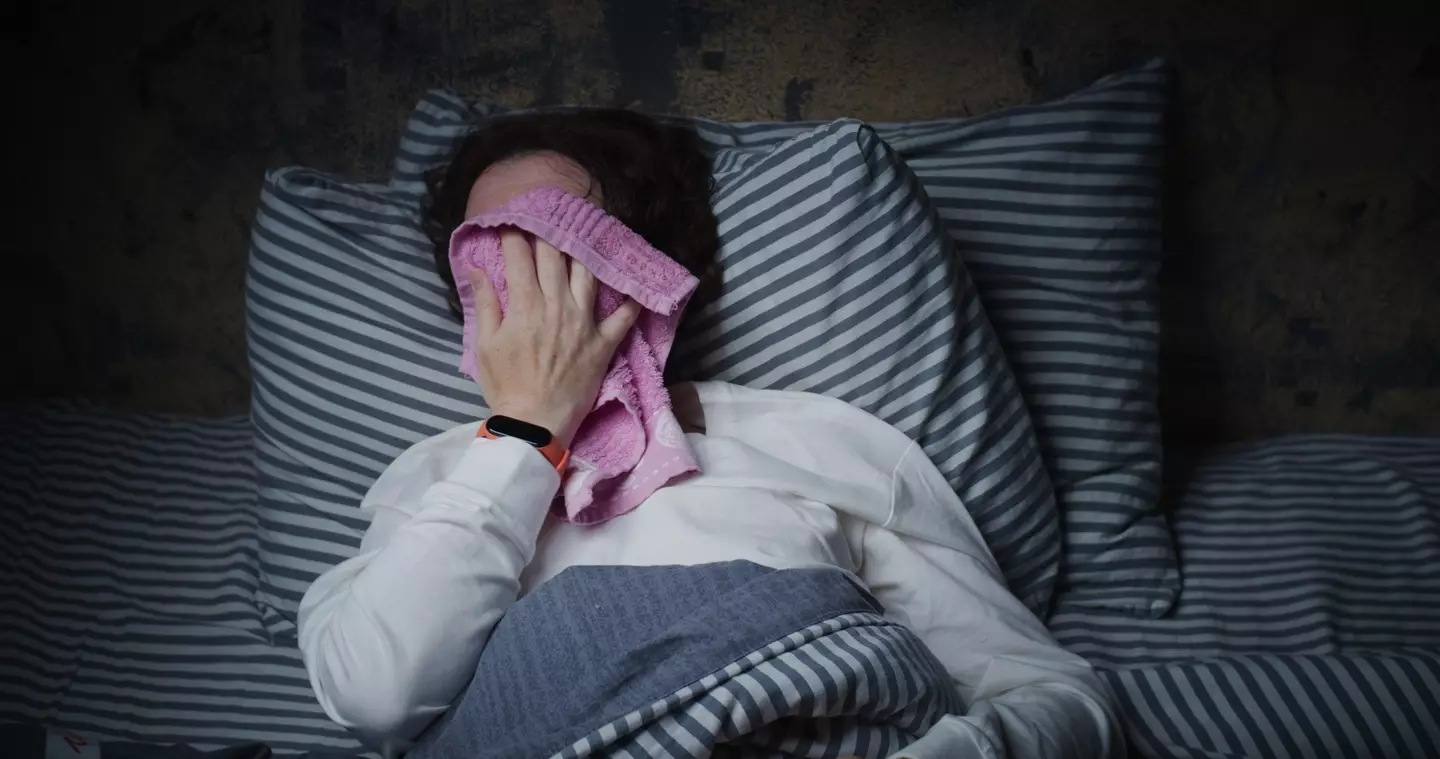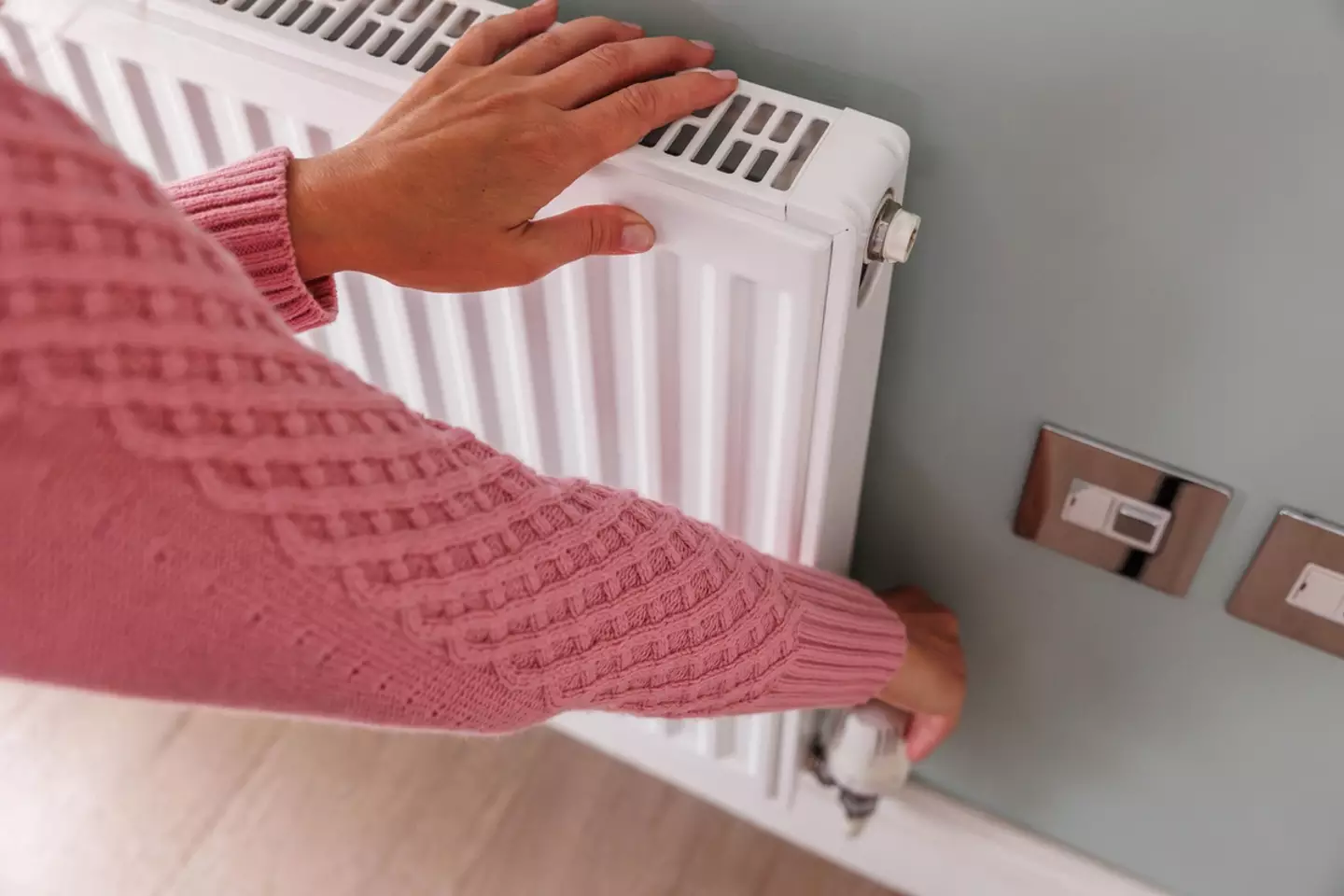As the chill of winter sets in and the days grow shorter, it’s tempting to keep your home warm and cozy, even while you sleep. But before you settle in for a toasty night, you might want to reconsider. Doctors are warning that sleeping with the heating on could have significant health consequences. Let’s explore the reasons why you should turn down the thermostat before bedtime and how it can impact your overall well-being.
Why Sleeping with the Heating On Can Be Harmful

As temperatures drop, many people keep their heating on overnight to avoid waking up to a cold house. While it may seem like a practical solution to battle the chill, experts advise against it. The warmth that feels so comforting at first could lead to a series of health problems that affect your sleep, respiratory system, and skin.
- Increased Risk of Overheating: According to the Sleep Foundation, the ideal temperature for sleep is between 15.6°C and 20°C (60°F to 68°F). Higher temperatures can cause your body to overheat, disrupting your sleep cycle. This not only makes it harder to fall asleep but can also cause you to wake up in the middle of the night feeling sweaty and uncomfortable.
- Worsening Allergies and Sinus Issues: Research from the Medical University of Warsaw found that certain indoor heating methods can increase the risk of allergic rhinitis and asthma. Dry air from continuous heating can irritate your nasal passages and throat, making symptoms like sneezing and coughing worse.
Impact on Your Sleep Quality
Sleep is crucial for maintaining good health, and the temperature of your bedroom plays a significant role in how well you sleep. When your bedroom gets too warm, your body struggles to regulate its core temperature, which is essential for falling into a deep, restorative sleep.
- Interrupted Sleep Cycles: As your body temperature rises, you’re more likely to wake up feeling hot and restless. This interrupts your sleep cycles, preventing you from reaching the deeper stages of sleep where the most restorative processes occur. Over time, this can leave you feeling tired and groggy during the day.
- Night Sweats and Discomfort: A room that’s too warm can cause excessive sweating during sleep, leading to dehydration and discomfort. Waking up drenched in sweat not only disrupts your rest but can also contribute to poor sleep hygiene, making you feel even more fatigued the next day.
The Effects on Respiratory Health
If you already have respiratory issues, leaving the heating on at night can make things worse. The dry heat produced by radiators and central heating systems removes moisture from the air, leading to a series of respiratory problems.
- Dry Airways: The heated air can dry out your nasal passages, making it harder for your respiratory system to filter out germs and pollutants. This increases your susceptibility to colds, coughs, and even more serious respiratory conditions like bronchitis.
- Aggravated Allergies: If you suffer from allergies or asthma, dry air can be particularly harmful. Dust mites and allergens thrive in warm environments, meaning that overnight heating can actually worsen your symptoms. Inflammation of the airways can become more severe, leading to frequent coughing, sneezing, and congestion.
How Heating Affects Your Skin
Your skin is the body’s largest organ, and it can be significantly affected by overnight heating. Prolonged exposure to dry, heated air can strip your skin of its natural moisture, leading to a variety of problems.
- Skin Dryness and Irritation: Dermatologist Dr. Hiba Injibar from Harley Street’s Dermasurge Clinic advises against keeping the heating on overnight. “Turning off the heating during the night can help ease skin dryness, particularly for those with eczema or other inflammatory conditions,” she explains. The dry air depletes your skin’s moisture levels, leading to dryness, irritation, and even cracking.
- Wasted Skincare Efforts: If you invest in skincare routines and products, sleeping in a heated room could reduce their effectiveness. Without adequate moisture in the air, your skin struggles to retain hydration, making all those pricey creams and serums less effective.
Additional Downsides of Sleeping with the Heating On

Beyond the immediate health impacts, there are other disadvantages to sleeping with the heating on that may not be as obvious but are equally important to consider.
- Higher Energy Costs: Running your heating overnight can significantly increase your energy bills, costing you more money in the long run. Reducing your heating use at night can lead to substantial savings, especially during the colder months when heating bills tend to rise.
- Negative Environmental Impact: Keeping the heating on while you sleep isn’t just costly; it’s also less eco-friendly. By turning off or lowering your heating at night, you reduce your carbon footprint, making a small but meaningful contribution to environmental conservation.
Tips for Staying Warm Without Sleeping with the Heating On
If the idea of sleeping without the heating on sounds unbearable, don’t worry—there are plenty of ways to keep warm without compromising your health.
- Layer Up: Wear warm, breathable pajamas made from materials like cotton or wool, which help retain body heat while allowing your skin to breathe.
- Use Thermal Bedding: Invest in a thicker duvet, thermal blankets, or even an electric blanket that you can turn off before falling asleep to maintain warmth without overheating the room.
- Try a Hot Water Bottle: A hot water bottle or heating pad can provide targeted warmth in your bed, keeping you cozy without drying out the air.

Conclusion: Turn Off the Heating for a Healthier Night’s Sleep
Sleeping with the heating on might seem like a quick fix for cold nights, but it comes with risks that can affect your health, sleep quality, and skin. From causing overheating to aggravating allergies and increasing skin dryness, keeping the heating on overnight may do more harm than good. By turning off the heating and embracing alternative ways to stay warm, you can sleep more comfortably and wake up feeling refreshed and revitalized.
As winter sets in, remember that a good night’s sleep doesn’t have to come at the expense of your health. A little adjustment to your nighttime routine can make a big difference in how you feel, both now and in the colder months ahead.


